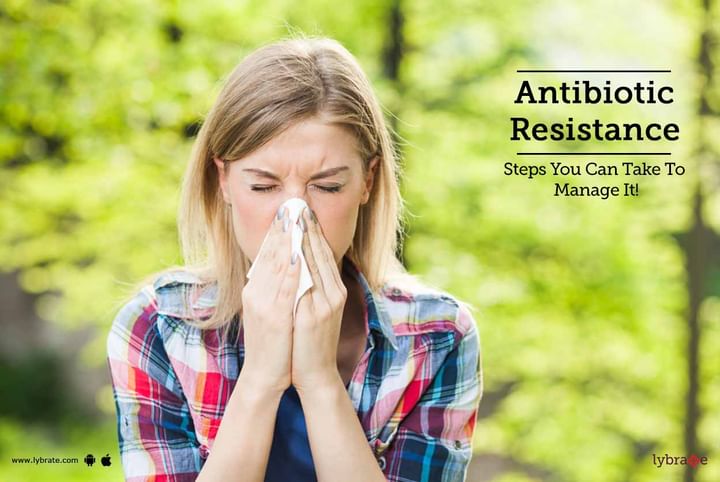Antibiotic Resistance - Steps You Can Take To Manage It!
Ever been in a situation where a medicine you used to take regularly to deal with something, has suddenly stopped being effective? This is because of antibiotic resistance. This refers to the ability of bacteria to change their structure so as to resist the antibiotic. Thus, an illness that was once easily treatable is no longer affected by the same medicines and the bacteria causing the infection multiplies, thus worsening the condition.
How do bacteria develop antibiotic resistance?
When you take a drug, not all the bacteria present is affected equally. While some bacteria die out, others turn dormant. Repeated and improper use of antibiotics can lead multiplication of the dormant bacteria, which results in spreading of disease, instead of containing the same. One of the main causes of this is using strong antibiotics to treat minor viral illnesses.
What can you do to fight antibiotic resistance?
- Follow your prescription: When taking a course of antibiotics, it is also essential to complete the course and not leave it midway just because you are feeling better. Antibiotics are also most effective when taken regularly. Hence, avoid skipping a dose in your treatment. Doing this does not completely cure the infection, but increases the bacteria's resistance to the drug.
- Do not take someone else's medicine: Self medication can do more harm than good. Each drug attacks a particular combination of symptoms. Taking medication prescribed for someone else can increase the bacteria's resistance to antibiotics. It can also delay correct treatment, thus allowing your condition to worsen.
- Discard the leftover medication: When stored for a long period of time, medicines lose their potency. Thus if you were to take them later, they would be less effective against the bacteria.
- Do not take antibiotics for a viral infection: In any case, antibiotics to not address viruses and hence, the medicine will not have a beneficial effect on the virus. However, it can affect the bacteria present in your body by making it resistant to the drug.
- Do not use antibiotics for an extended duration: Use of antibiotic for treating issues such as acne can contribute to antibiotic resistance. If you must take any such medication, ensure that you are being cared for by a healthcare professional. Most doctors will suggest giving your body breaks between antibiotic courses when it comes to long term medication.
- Try natural remedies: Many common bacterial infections can be successfully treated naturally in their early stages. Aloe Vera, turmeric, garlic and tea tree oil are some of the natural cures for a range of bacterial infections. The biggest advantage of these natural cures is their lack of side effects.
In case you have a concern or query you can always consult an expert & get answers to your questions!



+1.svg)
